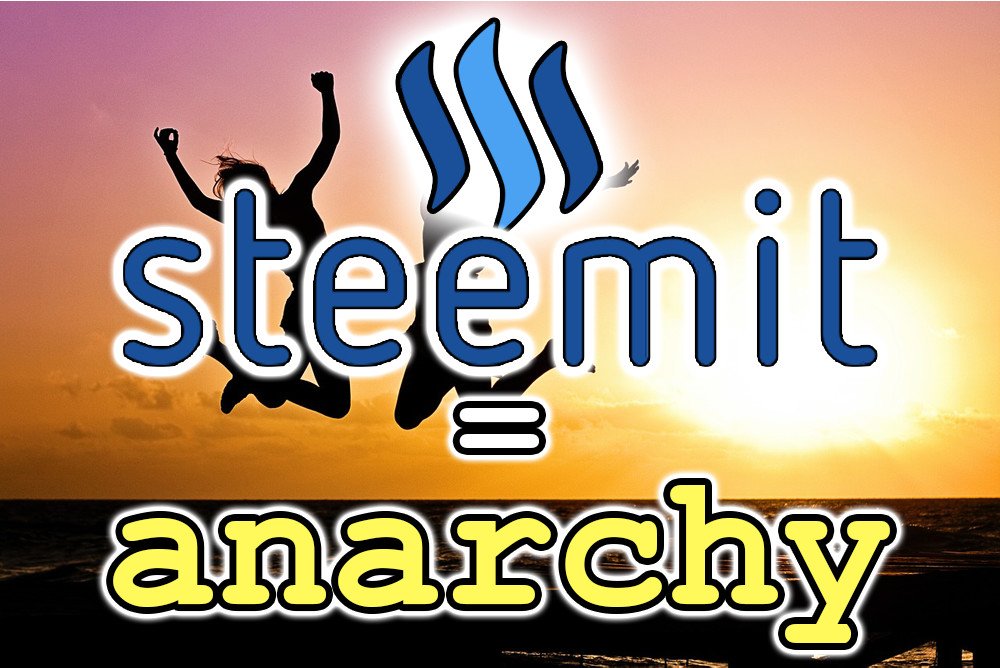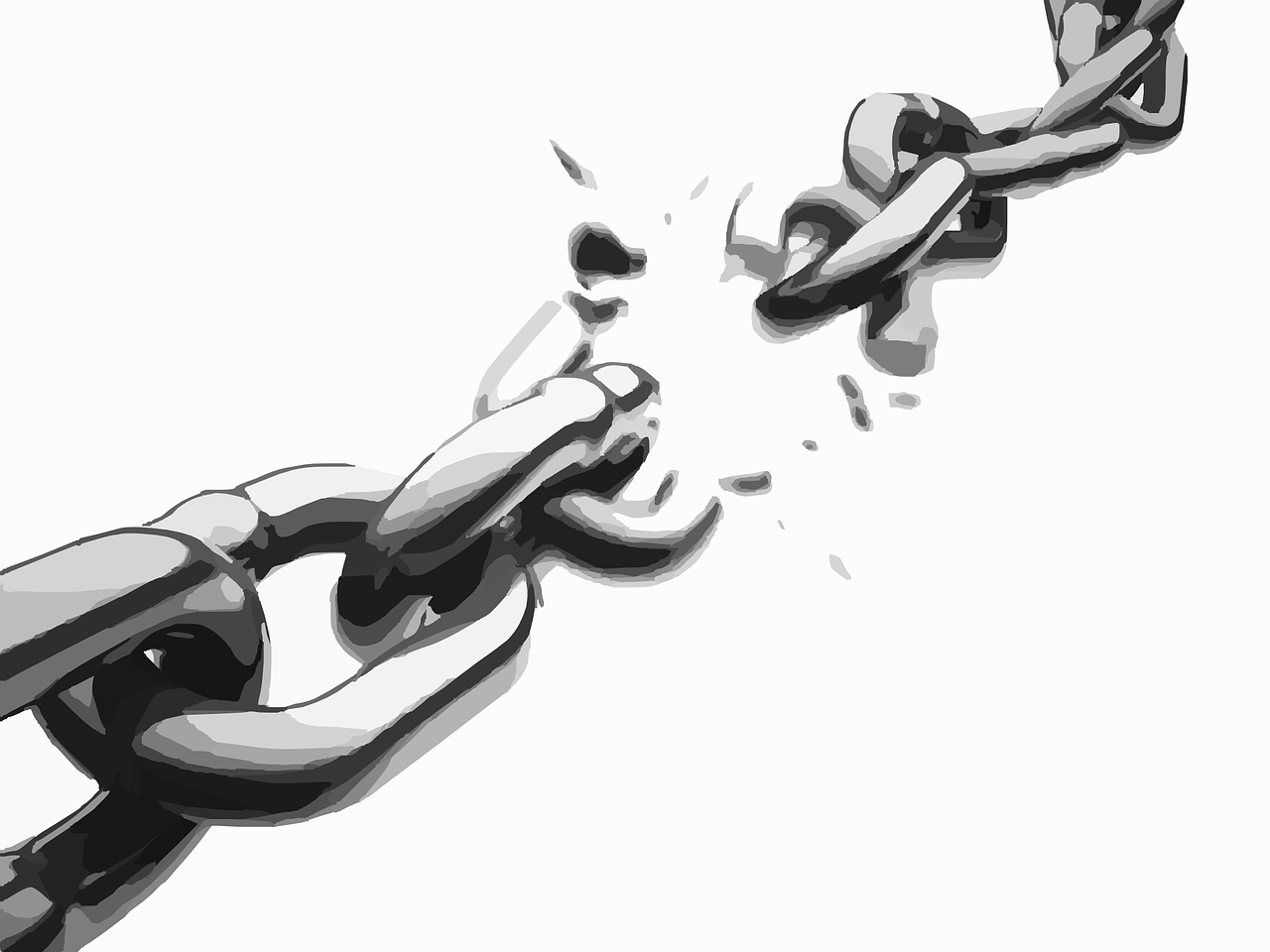
For many of us, Steemit has already changed so much - the way we navigate the web, the way we think about money, and for a fortunate committed few, it's even changed their professions. However, the change that I expect from this model goes even deeper. It's possible that Steemit, and descendent technologies, may play a part in creating a voluntary world, a stateless world, in which everyone who takes money from someone, or puts someone in a cage without their consent, or orders such acts, will be seen and treated as a criminal. There are several ways in which Steemit can aid this cause. Let's start with the most important - the conversation.
It changes the way we talk

The problem with voluntaryist argumentation
Many of you might have noticed, and even been a party to, hard-line conversations about anarchy, in which the voluntaryist proceeds to take the words of the other party, and question them about some perceived inconsistency in their beliefs, attempting to lead them through a Socratic dialogue, in order to bring them to accept the truth - that the other party is wrong - very, very wrong. You also might have noticed (as I eventually noticed, after years of banging my head on walls) that this technique almost never works.
Of course, the reason that it doesn't work, is because people have a need to feel that they're being understood, that their concerns are heard, that their thoughts are valid. In brief, they need to feel like people. If you don't treat someone like a person - unless you're talking to an exceptionally patient person - you're unlikely to receive a personable response.
An oasis
The comment section on YouTube is a running joke. Facebook discussions descend into dirtslinging, strawmen and threats. You may wade through many racist and sexist comments before you find something that is truly valuable information, and even then it may be tainted with aggression. In contrast, Steemit's comments sections seem like a desert oasis - all but filled with calm discussion, respect, insight, or at the very least, positivity. Surely, this is a place where one can have a constructive conversation about controversial topics.
The incentive to be good
I have noticed over these few short months, the way that Steemit has changed the way that I interact with people, especially online - on Steemit and other social networks. I've found myself a few times, even as I'm about to make a statement which is mildly passive-aggressive, thinking "Hold on - is this something I would write if my reputation were on the line? If not, maybe I shouldn't write it." Even when I'm going to give someone some piercing criticism, which, if presented in the wrong way, may seem a condemnation, I can find ways to demonstrate empathy, such as compliments or other niceties.
It may sound like an unfortunate description of humanity (or of myself) to say it, but when our bank balances and reputations are on the line in every moment, we can find ways to communicate more kindly, and therefore, more fluidly, with the people we interact with.
Commitment and consistency
In Cialdini's famous and excellent book, Influence: The psychology of persuasion he describes how, when people make a commitment to something, they are more likely to see it as part of their identity, and strive to live up to that identity.
When people are kind to each other, respectful, and even open-minded on Steemit, it's not just that they're pretending to be nice. By acting nicer, they become nicer. By acting more open-minded, they become more open-minded.
The quality of our ideas
If the ideas of voluntaryism are as good as we believe they are, then surely a place like Steemit, where people are strongly encouraged to be respectful, considerate, empathetic and even open-minded, would be an ideal place to discuss them. If it turns out that our ideas are not as good as we think they are, then it gives us the perfect medium to discover something even better. That is beautiful.
Tax-free and shameless

In many developed countries, taxes are generally seen as legitimate and necessary, and people claim to be proud of paying their taxes - sometimes because they truly believe it, and sometimes because they don't want to face the fact that they have been forced into an elaborate con, from which they have no apparent escape.
But what if they did have an escape? What if, instead of being paid as an employee, having their income taxes automatically deducted from their pay, they were paid directly. What if thousands or millions of people were making income, or making a living, this way, and decided to openly flout the tax authority, publicly, knowing that it wouldn't have the resources to pursue any more than a small fraction of the cases?
Obviously, that would damage the appearance of legitimacy of the state, and also the perception of omniscience and omnipotence that its proponents tend to ascribe to it.
Development of cryptoanarchic solutions
"Unlike the communities traditionally associated with the word 'anarchy', in a crypto-anarchy the government is not temporarily destroyed but permanently forbidden and permanently unnecessary. It’s a community where the threat of violence is impotent because violence is impossible, and violence is impossible because its participants cannot be linked to their true names or physical locations."
- Wei Dai
We all know that Steemit/Steem is much more accessible than virtually any other cryptocurrency, being based around a style of platform which more than one billion people are already familiar with. That's pretty cool, and that means that more money will flow into cryptocurrency, meaning more attention, and thus even more development for similar technologies.
More development in cryptocurrency means more methods to control money, and other forms of information, publicly, privately, or anonymously, without governments being able to do anything about it.
Conclusion
Steemit is an important step, a continuation of the snowball effect of cryptocurrency, leading us to a voluntary, cryptoanarchic future, full of wonders we have not yet imagined, and degrees of freedom as yet unforeseeable. Boldly we take our pens, pads, keyboards and wallets, building a highway to a world where concepts are our language and our tools, but never our weapons, where the purity of ideas is worth fighting for, but never worth fighting with.
About me
My name is Kurt Robinson. I grew up in Australia, but now I live in Guadalajara, Jalisco. I write interesting things about voluntaryism, futurism, science fiction, travelling Latin America, and psychedelics. Remember to press follow so you can stay up to date with all the cool shit I post, and follow our podcast where we talk about crazy ideas for open-minded people, here: @paradise-paradox, and like us on Facebook here - The Paradise Paradox
Some other cool posts
Here are some other posts of mine to check out:
Freedom seekers' song: "Freedom on the beach (To Acapulco Part 2)"
Everyone deserves truth; everyone deserves compassion
Impossible! A conversation with a statist about starting a business

